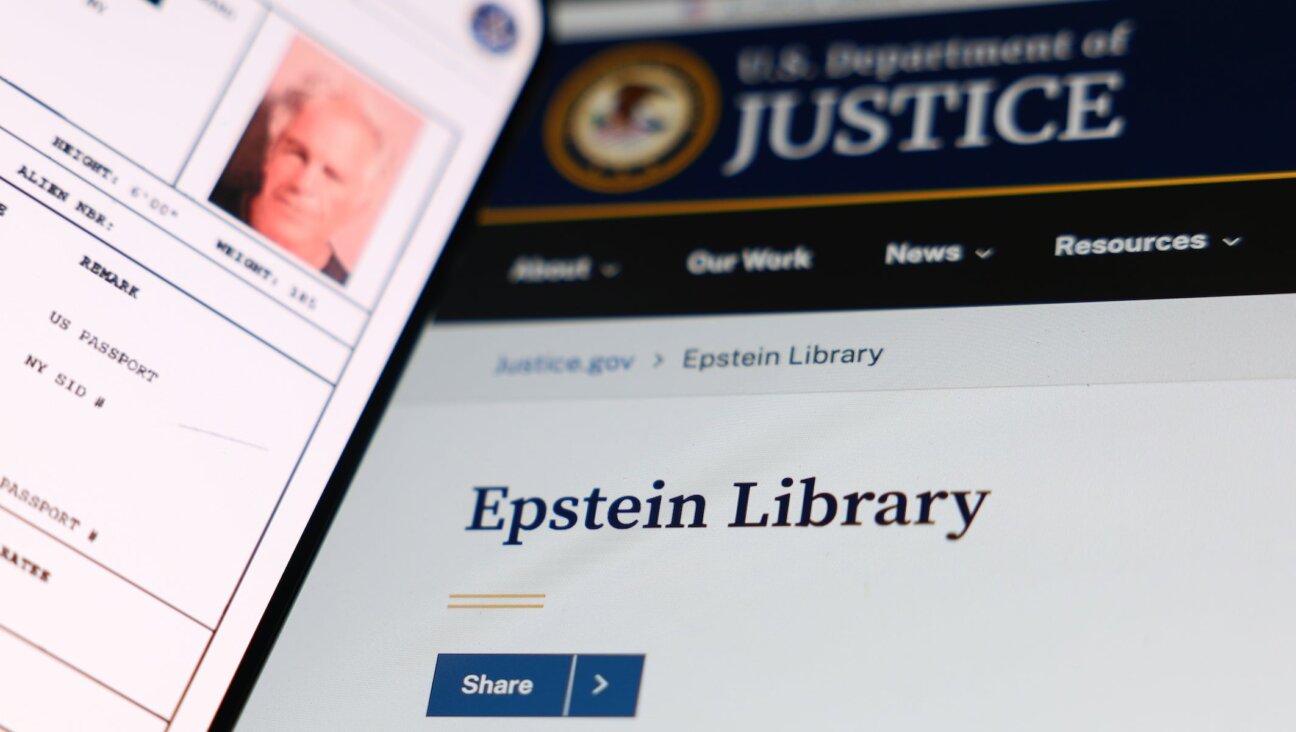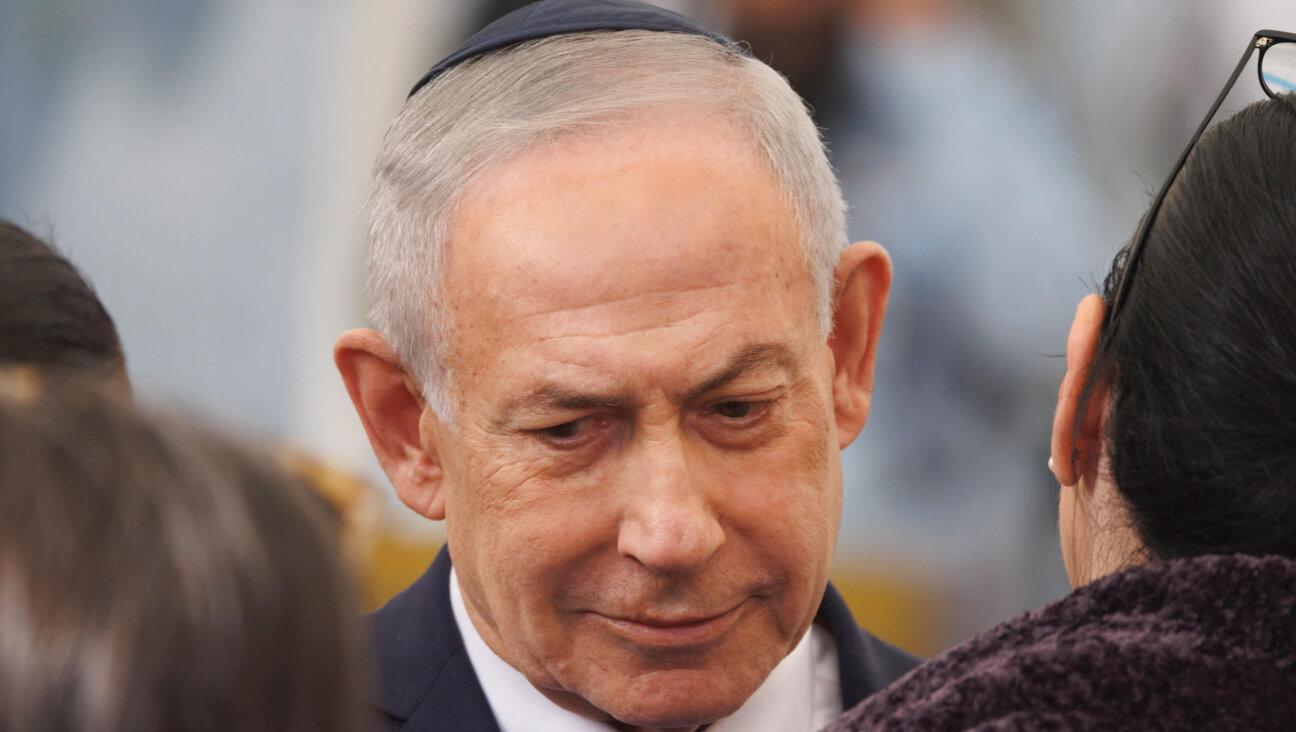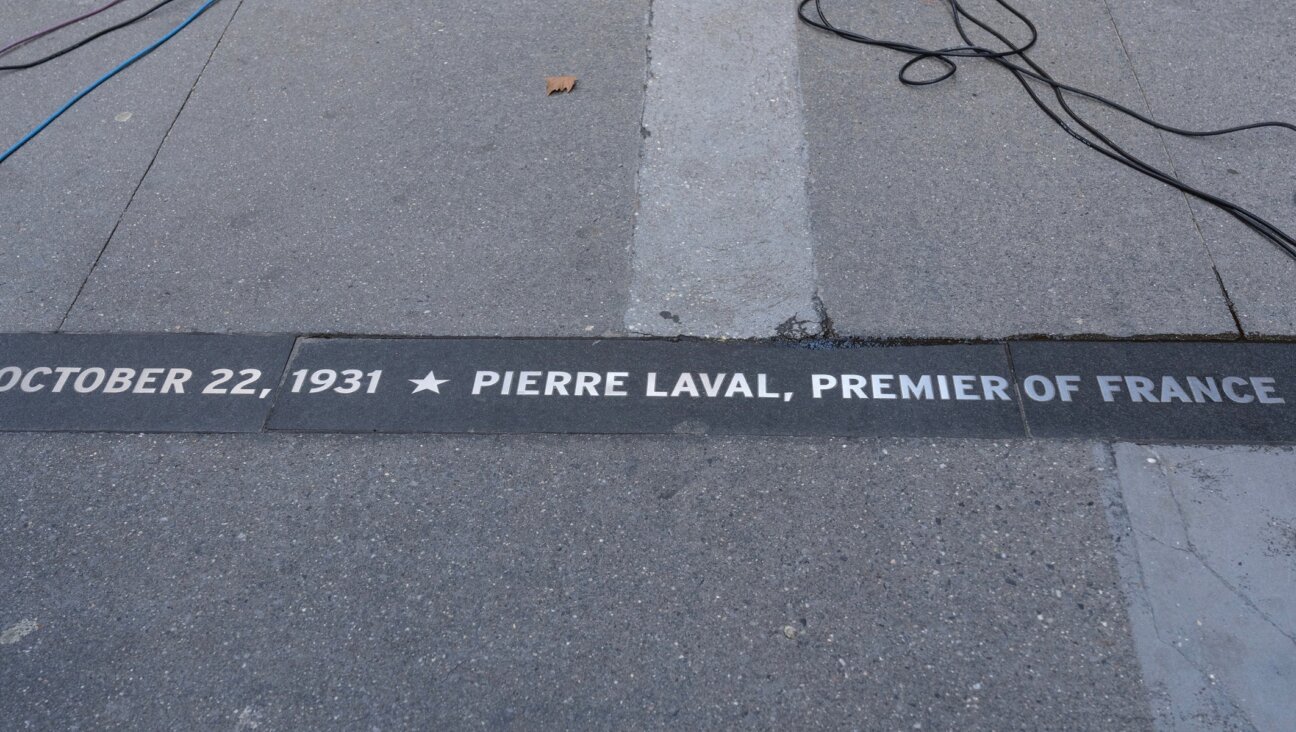Tourists Outnumber Residents In Storied Indian Community
“I feel like an endangered species, like a rhinoceros in a zoo,” Joseph Hallegua said with the faint helplessness of an old patriarchal figure slowly losing control over his domain.
The 70-something Hallegua is one of the last Cochin Jews, trying to come to terms with the grim future of his community. On the island of Cochin in the southern Indian state of Kerala, a once-thriving Jewish community has become microscopic. The island’s Jewish area has become a tourist attraction, complete with palm trees and a picturesque coastline. People like Hallegua live out their days under the curious gaze of voyeuristic visitors.
When Hallegua says his community is dying, he isn’t kidding. Only 14 Jewish residents remain, most in or approaching their 70s. The future looks bleak for the Jews of Cochin, but Hallegua and his neighbors still recall the island’s past with pride.
According to the guidebook available for purchase at the Cochin synagogue, “Kerala and Her Jews,” the region’s Jewish community can be traced back to traders in King Solomon’s fleet some 2,000 years ago. Numbers grew in the fourth century, when thousands of Jews arrived in India and the community was granted privileges by the Hindu rulers. But in the 1500s, the Moors, contemptuous of the Jews’ success in the booming spice trade, burned Jewish houses and synagogues and forced Kerala’s Jews onto Cochin, where they sought protection under the island’s Hindu raja, or leader.
In 1567 Jew Town was built, and the following year, the synagogue. Jews endured harsh rule under the Portuguese, after which the British provided the community much needed protection. When British rule over India ended in 1947, Cochin’s Jews maintained a high social status and comprised several hundred families.
Where have they all gone? Not without a sense of humor, Hallegua said they may have taken the saying “Next year in Jerusalem” a little too seriously. The founding of Israel in 1948 proved too tempting to be ignored by the Jews of Cochin as they left in droves seeking new lives, greater opportunity and what they could not get in India: a true feeling of belonging to a homeland. They made aliya at a time when assimilation in the fledgling Jewish state would not be hard, when they could feel a part of the founding of Israeli culture. According to Hallegua, those who moved to Israel decades ago have returned only to visit.
They are among visitors from all over the world who have descended on Cochin in recent years. Jew Street and the island’s synagogue have become highlights of tourists’ itineraries — a development that both pleases and dismays Hallegua. The Indian government has provided monetary assistance to restore the synagogue, which Hallegua — the building’s caretaker — appreciates. But thanks to tourism, the local Jewish community must face a constant stream of outsiders peering into their personal lives. It is no wonder Hallegua feels like an animal in a zoo.
His distaste for gawkers is apparent when Indian tourists arrive at the synagogue — now also a museum — and Hallegua recites the building’s history in a monotone. But when a group of American Jews enters, his passion for his religion is ignited and this tiny, weak man is suddenly transformed, with a glow in his eyes and a surprising burst of energy. Excited, he opens the ancient Torah for viewing only by those of the Jewish faith. In the company of Jews from New York and Wisconsin, Hallegua and his synagogue are brought to life. The “No Photos Allowed” sign is disregarded and Hallegua, now running about, yells, “From here, the light is better,” and “Please, take pictures of the Torah — beautiful isn’t it?”
A few moments later, more Indian tourists arrive and the small door to the Torah is slammed shut. Hallegua and his passionate conversation become, once again, a thing of the past.
Despite Hallegua’s ambivalence about visitors, the community does not have a particularly tense relationship with outsiders. Cochin’s Jews enjoy a positive rapport with the Indian government — whose guards stand watch outside Jewish sites — as well as with their local Keralite neighbors. Hallegua speaks the local Indian language, Malayalam, to his neighbors and his wife, who owns an embroidery shop on Jew Street, and enjoys a midday cup of tea with other local storekeepers.
There is no reason, it seems, for the Jews of Kerala to leave this comfortable enclave — except, of course, to find a Jewish community with a brighter future, perhaps by moving to Israel like an earlier generation of Cochin’s residents. But Hallegua, who has relatives who moved to Israel, scoffs at the idea of making aliya at this stage in his life.
“No, now I would be an outsider,” he said. “This is my home.” He has visited Israel but has always returned to India. His relatives in Israel, he noted, “are Israelis now — I am not.”
The Jews of Cochin are not entirely isolated; there is a small contingent of Jews living in Ernakulam, a town on the mainland of Kerala across the bridge from Cochin. Nonetheless, there is no religious leader, and only three or four men attend services regularly. (Women attend synagogue only on holidays.) Still, they are a strong community and have recently started to come together to address a daunting subject: their future. When asked about the enormous burden that will face the last person left, Hallegua replied stoically, “Thankfully, I will not be the last one.”
Although no final arrangements have been made, a few options have been discussed regarding the preservation of the community’s history and influence. Tourism will continue to flourish as long as the synagogue is maintained, making its conservation of interest to the Indian government. Most likely, it will be turned into a historical society supported by either the Indian government or Jewish trustees from the United States or Israel, or a combination of all who possess an interest, one way or the other, in maintaining this ancient site.
But what legacy will survive? What will become of Jew Street, the synagogue? This community patriarch shrugs and bows his head. A dying community reflected in his aging eyes, Hallegua spoke slowly, divulging all he knows for certain: “In eight years, we’ll all be gone.”















